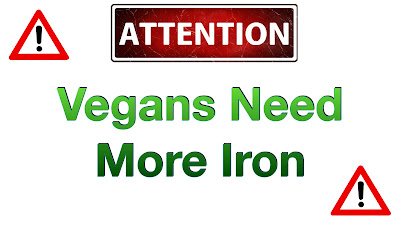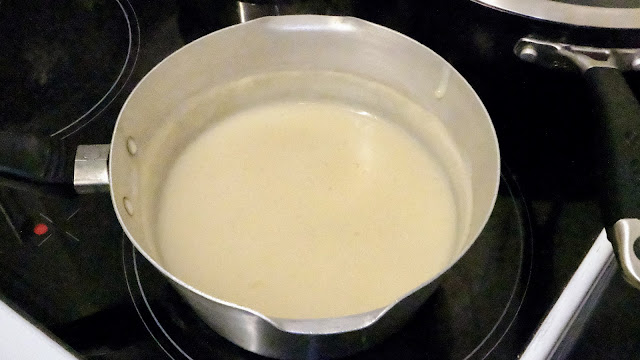Essential Nutrients Every Vegan Should Know

By McDonald, T. | Updated 01 of July 2021
All vegans need to pay attention to nutrition since some vitamins you can't get from vegetables. This is way you may have heard or even seen on food packaging about foods fortified with things like B12. However, it is easy to miss out on a balanced diet if you neglect to investigate nutrition.
B12
Why is it important?
Without B12, serious health problems can occur such as:
- Permanent nerve damage
- Depression
- A pale yellow tinge to your skin
- Irritability
- Pernicious anaemia
Function
B12 helps to keeps nerve and blood cells healthy. It also helps to made DNA in the cells. B12 loses the protein it is bond to and then binds to another protein in the body called intrinsic factor allowing it to be absorbed. If the body can't make intrinsic factor, it is difficult for the body to absorb B12 resulting in Pernicious anaemia (NIH, 2021).
Foods With B12

For vegans, this will have to come from either fortified foods or supplements since no plants contain them. Other diets get this vitamin from meat, eggs and dairy because the animals eat the plants and feed with the bacteria on that makes B12. Yes, that is correct, B12 comes from bacteria. Stated in Vitamin B 12 sources and microbial interaction (Watanabe F, Bito T. 2017) published in the National Library Of Medicine: 'B12 is synthesized by only certain bacteria and archaeon, but not by plants or animals.'
The Vegan Society says on their website:
'To get the full benefit of a vegan diet, vegans should do one of the following:- Eat fortified foods two or three times a day to get at least three micrograms (mcg or µg) of B12 a day
- OR Take one B12 supplement daily providing at least 10 micrograms
- OR Take a weekly B12 supplement providing at least 2000 micrograms.' (The Vegan Society, n.d)
Since the vegetables we eat are washed so vigorously, the plants have no B12 on them that would usually be in the soil. So what foods are fortified with B12?
- Yeast extracts like marmite
- Nutritional yeast fortified with B12
- Some mock meats are fortified with B12
- Vegan yogurts and milk are usually fortified with B12
- Supplement like VEG 1

It is always best to read the packaging to see if a product has B12 in or you can just take a supplement. Furthermore, some medications can decrease the levels of B12 in the body. For instance, some drugs used to treat diabetes or peptic ulcers can lower the levels of B12. For this reason, if you take medication, it could be a good move to find out more from the NHS or NIH websites.
Folate
Folate is otherwise known as B-9 and is a vitamin.
Why is it important?
This is another one that is needed for red blood cells and i lake of it can lead to a type of anaemia where the red blood cell become larger than normal preventing them from functioning efficiently.
Function
- Needed to make new DNA in cells.
- Helps form healthy red blood cells
Foods With Folate
- Marmite
- Beans
- Lentils
- Green vegetables
Iron
First, we must acknowledge that vegans need more iron than meat eaters simply because less iron is absorbed from plants by the body than from meat. In addition, iron is more easily absorbed by the body if it is consumed with vitamin C. In other words, eat both iron and vitamin C together in any meal. It is also worth noting that tea and coffee will restrict the absorption of iron, so leave the hot drinks to later.
Why is it important?
A lack of iron will result in anaemia.
Function
- Oxygen transport.
- Energy production.
- Immune system.
- DNA symphonies.
Men and women need different amounts of iron
According to the NHS (2020), 'the amount of iron you need is:
- 8.7mg a day for men over 18
- 14.8mg a day for women aged 19 to 50
- 8.7mg a day for women over 50'
However, the NHS (2021) also has this to say about vegans and iron,
'A vegan diet can be high in iron, although iron from plant-based food is absorbed by the body less well than iron from meat.'
This means vegans need to eat a little more iron than non-vegans.

 Foods high in iron
Foods high in iron

Since vegans don't eat meat or fish, we need to get our iron from plants and other sauces.
- Wholemeal/wholewheat/brown bread.
- Cumin.
- Turmeric.
- Paprika.
- Kidney beans, chickpeas.
- Dark green leafy veg including broccoli.
- Nuts and dried fruit.
Calcium
There is a huge amount of miss information going around about calcium from how much we need to where to get it from. First, lets bust the myth about it only coming from milk. Calcium can be found in vegetables and fortified foods such as bread. The myth came around through clever advertising from the dairy industry. Second, some countries say we need different amounts. However, if you are in the UK,
"Adults aged 19 to 64 need 700mg of calcium a day. " (NHS, 2020)
 |
| Slice of tofu |
Why is it important?
A lack of calcium in children can lead to a condition called rickets, which is bowing of the legs. In adults it can lead to Osteoporosis. The NHS (201) at their website says this about Osteoporosis:
"Osteoporosis is a health condition that weakens bones, making them fragile and more likely to break. It develops slowly over several years and is often only diagnosed when a fall or sudden impact causes a bone to break (fracture). "As we can see, calcium is extremely important for everyone.
Function
- Calcium is needed for healthy bones and teeth.
- Interestingly enough, it
is also needed for muscle contraction and blood clotting.
Foods High In Calcium
- Tofu (Extra Firm). This is going to be one of the best places to get your calcium from.
- Vegan milk. Some vegan milk has the same amount of calcium in as cow's milk.
- Vegan yogurt.
- Bread. Yes, bread is fortified with calcium by law in the UK and some other countries.
Zinc
Since the body doesn't store zinc well, it is necessary to consume sufficient amounts on a daily basis.
Why is it important?
According to NIH (2020) in the USA, Zinc "...is required for proper sense of taste and smell." Since we love our food, we want to keep our sense of smell and taste! Zinc also is involved in processes in cells and is good for the immune system.
Function
- Protein synthesis
- Cell division
- DNA synthesis
- Immune function
Good sources of Zinc
- Beans
- Tempeh
- Nuts and seeds
- Whole grains
- Nutritional yeast
Protein
This is the one that everyone says to a vegan about. But where do i get protein? Honestly, people think that meat is the only place to get protein from! Well, have i got news for you. It can be found in beans, bread and even veg. Protein is made from amino acids on the endoplasmic reticulum in the cell. The building sequence of protein goes DNA, RNA, protein. The DNA holds the blueprint to every protein while the RNA acts as the reader and eventually because the template by which the body creates the protein. In addition, there are a total of 21 different amino acids by which to build the proteins in the human body, but 9 of them can't made in the body meaning humans must consume them. These amino acids are called essential amino acids.
Why is it important?
Protein is needed by the body to make everything. Subsequently, protein is used for hormones needed in the bodies communication as well as building and maintaining muscle. In fact, protein is so important in communication that if it doesn't fold up correctly, it fails to do its job resulting in problems. A lack of protein causes kwashiorkor, which is characterised by an enlarged tummy ("pot belly"); loss of muscle mass; dry, brittle hair that falls out easily and may lose its colour; red, inflamed patches of skin that darken and peel or split open amongst other things according to the NHS (2019).
Function
- Building an maintenance in the body
- Communication
Foods High In Protein
- Tofu (Extra firm)
- Tempeh
- Beans and pulses
- Seitan
- Edamame
- Lentils
- Split peas
- Chickpeas

References
NHS (2020) Eat well: 'Iron' available at https://www.nhs.uk/conditions/vitamins-and-minerals/iron/ (Accessed on 15/01/21)
NHS (2020) Eat well: 'Calcium' available at https://www.nhs.uk/conditions/vitamins-and-minerals/calcium (Accessed on 15/01/21)
NHS (2019) Eat well: 'Osteoporosis' available at https://www.nhs.uk/conditions/osteoporosis (Accessed on 15/01/21)
NHS (2019) Eat well: 'kwashiorkor' available at https://www.nhs.uk/conditions/osteoporosis (Accessed on 22/04/21)
NIH (2021) 'Vitamin B12' available at https://ods.od.nih.gov/factsheets/VitaminB12-Consumer/#h1 (Accessed on 25/02/21)
Watanabe F, Bito T. (2017) 'Vitamin B12 sources and microbial interaction.' National Library Of Medicine. Available at https://www.ncbi.nlm.nih.gov/pmc/articles/PMC5788147/ (Accessed on 01/07/21)
The Vegan Society (n.d) 'What Every Vegan Should Know About Vitamin B12' available at https://www.vegansociety.com/resources/nutrition-and-health/nutrients/vitamin-b12/what-every-vegan-should-know-about-vitamin-b12 (Accessed on 25/02/21)




Comments
Post a Comment